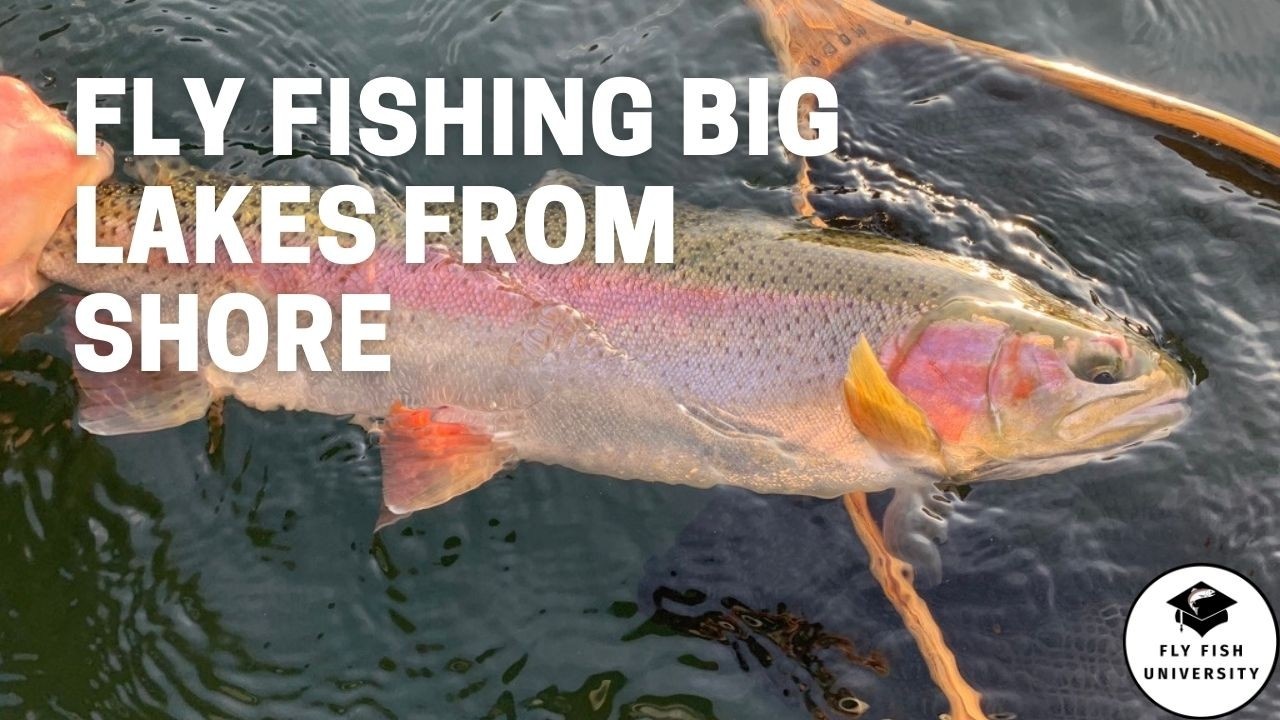How to Fish Big Lakes from Shore

BIG LAKES... they can be tricky, daunting, and a LOT of fun. Today's episode of Fly Fish University brings you 5 tips for fishing big lakes from shore successfully.
Though there's a lot of area to cover on big lakes, and finding fish can be a challenge at times due to the fact that they could be anywhere, that's no reason to shy away from them. Though large water bodies can be intimidating, with a proper food source they can offer fish the ability to grow to immense sizes. As a fan of fishing big lakes in the early spring, here are 5 things I suggest to you.
BEFORE WE GET GOING... don't forget to register for the (FREE) Fly Fishing Accelerator Workshop on March 23, 24 & 25! Click here to grab a seat
HERE WE ARE:
- Break big lakes into smaller lakes - Don't pretend like you're going to tackle the whole thing in one day, find a way to get your brain to understand that a big lake can be seen as simple a series of smaller waterbodies all put together. Remember that so much of the water found in big lakes is not water we're going to target anyways.
- Find attractive shoreline structure - You want to look for areas that are going to be attractive to fish, those that offer ample backcasting room, and ideally allow you to put your presentation in a fishy zone without having to cast too far. Observe the gradient of the land around the shoreline, and draw an imaginary line into the water, This will allow you to position yourself closer to drop-offs and ledges
- Fish your flies with confidence - Just because you are on a large waterbody doesn't mean that you cannot fish small flies effectively. If you're trout fishing, remember that fish in a large waterbody will often hone in on the same food insects, invertebrates and baitfish that those in a smaller lake will be looking for as well,
- Research your food sources - Understand what fish are feeding on in these large waterbodies. Are there anadromous fish that lay eggs, which hatch into fry in the springtime, and does it play a part in the diet of the species you're targeting? Does the lake have a prolific insect population? A bit of research and observation can go a long ways.
- Don't be afraid to cover water - You are fishing a big lake, and often the scenario is very "here one day, gone the next". You need to be willing to move, hike, drive, portage, anything you can do to continually cover new water.
Find the full meal deal below on Fly Fish University TV and the Fly Fish University Podcast!




